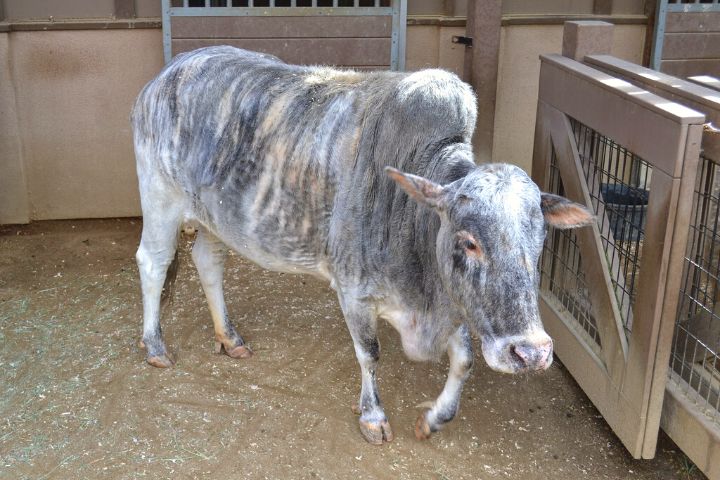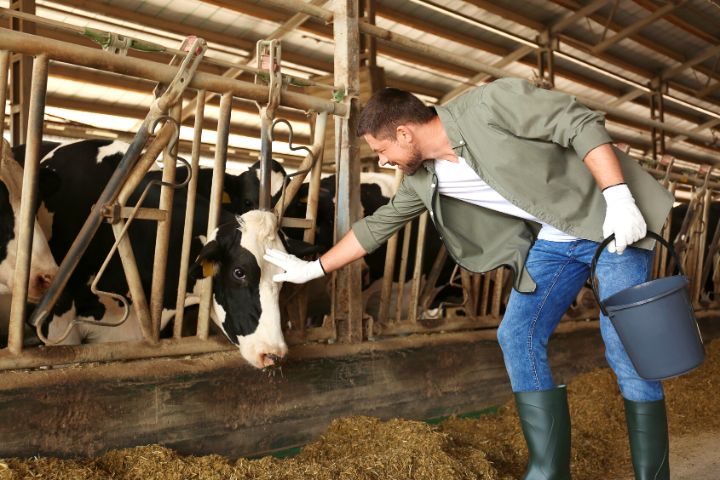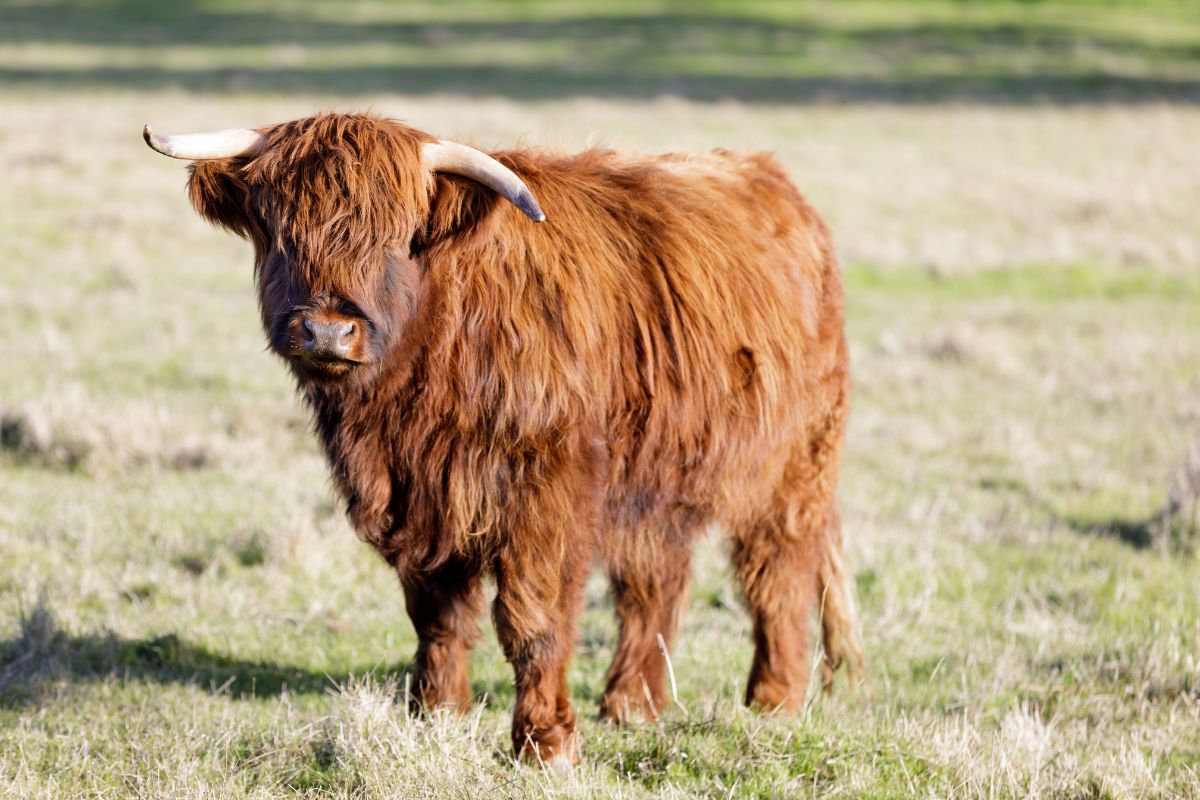All You Need to Know About Miniature Cows
Whether you’re an experienced farmer, do farming as a hobby, or want to get into the industry, you have to do proper research and look into all options to ensure your farm is successful and doesn’t bring you more stress than happiness!
Even if you don’t work towards a profit, it is important to choose your animals and crops properly. You are at risk of possible bankruptcy if you do not do your research. If you want to start including animals on your farm, you should look into miniature cows.
A mini cow is a perfect gateway animal on your homesteading journey as they certainly have advantages compared to full-size cattle versions.
Related Topics: Livestock Finance and Small Acreage Farming Ideas Australia
What are Miniature Cows?
Mini cows are exactly what you think they are, mini cows! They are just like normal cows but smaller. While this may seem unproductive and hard to believe how they would bring success to your farm, there are many reasons farmers opt for them rather than normal-sized cows.
Mini cows are developed in the same way as miniature horses through selective breeding. Mini cow breeders will choose their desired ‘regular-sized’ cow breed and cross with a cattle breed known for its small build. An example is the Hereford crossed with the Dexter.
Since they are miniature cows, you would save money, require smaller space, and don’t eat as much as a regular cow. However, you will be getting a lot less milk.
What are the most popular miniature cow breeds in Australia?
In general, there are two types of cow breeds: Bos indicus (originated in Asia) and Bos taurus (originated in Europe). Miniature cows will fall under one or the other type and the most common breeds are:
- Miniature Highlands
- Miniature Galloways
- Miniature Herefords
- Dexter mini cows
- Miniature Zebus
- Australian Lowline
- Mini Jersey cows

These mini cows have been selectively bred to be one-third to one-half the size of a standard cow. You would see a miniature cow around 120cm tall at the hip and the smallest at 95cm or less.
Benefits of Raising Miniature Cows
There are many advantages to introducing mini cows into your farm. They are perfect for those who have limited space, homesteaders who are new to the game, or don’t need much beef and milk at a time.
- Mini cows are easier to take care of. Handling a big dairy cow can spell bad news for someone who’s new to livestock. On the other hand, some homesteaders may not be comfortable with large animals, making mini cows the perfect go-between. Mini cattle are very easy to handle and are much calmer than their larger counterparts. Taking care of them will be easier, too, such as giving injections, milking, deworming, and first aid.
- Minimal damage to your pasture and fencing. Cattle are usually rough on pasture because of their weight and rough hooves. Beef cattle are known to be rough on fencing because they like to lean on it. Mini cows are much easier on pasture and your fencing. You won’t need tough fencing for mini cows.
- Good with children. Children love animals and will probably want to jump around with them as they work on the farm. Even a gentle cow does not realise their strength and can be too overpowering for children. Having a mini cow gives you a little peace of mind, as they’re much lighter than a normal cow and do not have the strength to injure your children. They’re also good animals to teach your children with. In this regard, they are similar to alpacas!
- Save money. A cow that weighs around 220 kg does not eat as much as a cow that weighs around 680 kg. Some small cow breeds, such as the Dexter, eat much less feed than other mini cows.
- Breeding. If you want, you can breed mini cows. Breeding heritage breeds and popular ones can earn you quite of money on the side. While this shouldn’t be your main focus, selling extra calves can help with many costs of the farm, and you can pocket some for yourself as well! Check with your area regulations before you decide to breed.

Are There Disadvantages to Miniature Cows?
With the pros come some cons that you should consider when getting a mini cow.
- They are susceptible to getting hurt. Since mini cows are well mini, they find it hard to defend themselves from predators. Plus, if you keep your minis with larger animals, their companions can injure them when fighting or playing.
- They are costly! You would think mini cows are also cheap to buy, but it’s quite the opposite. Mini cows are difficult to come across since they must be selectively bred, so there’s a short supply. The prices that are asked for quality mini cows without disabilities can be shocking.
- Minis need special equipment. For example, mini cows are too short for most feeders, so you need to lower them so they can reach them. You would also need to look into buying a smaller barn because a normal-sized one would be too big. You’d have to get down and dirty on the ground when you milk mini cows.
Caring for Your Mini Cow
Taking care of your mini cows can be a fun and rewarding experience for you and your family. It can also be a good bonding experience for your animals and the family. Taking proper care of the minis ensures they live long and happy life.
Here are some basics you should have down when you have minis.
A Place to Chill and Sleep
Shelters are very important for your mini cows. As much as they love to run around on the farm, they need a well-ventilated shelter where they can lie down and sleep. This shelter must be spacious enough to hold all your cows comfortably.
Pasture and Grazing
You must ensure that your mini cows can get to their pasture/grazing areas to munch on fresh grass. Rotate the pastures frequently to prevent overgrazing and maintain the growth of healthy grass and vegetation. If you have a small area, you can give them high-quality hay and forage.

Feeding and Fresh Water
Depending on certain nutritional needs, your mini cows need a balanced diet with grass, hay, and supplemental feed. You can consult a livestock nutritionist or veterinarian to make an eating plan for their breed, age, and purpose (meat or milk).
Make sure that they always have clean and fresh water. Mini cows love to play and run around, so they drink a lot of water. Make sure they have an easily accessible water source.
Check-Ups and Hoof Care
Make friends with a veterinarian that is experienced in treating cattle. You should schedule regular deworming, vaccinations, and check-ups to make sure that the mini cows are healthy. Check your cows for any signs of injury and sickness, and go to the vet when necessary.
You must also check and maintain the hooves of your mini cows. Trim the hooves to prevent lameness or overgrowth, which can cause pain to the cows. Also, monitor them for parasites, so keep up with deworming, implement fly control methods, and inspect for signs of infestation.
Keep a record of deworming, vaccinations, and other important information. This helps you track the health and productivity of the cows so they are happy, and you’re happy!
Socialise Your Animals
Mini cows are very sociable, so you can’t get just one. Getting multiple cows ensures they are happy and maintains their mental well-being. You must gently train them from a young age so they get used to you and your contact. This makes husbandry tasks easier for you and your cows!
Apart from other mini cows, they also get along well with any other farm animal.
Frequently Asked Questions

How long do miniature cows live?
Despite their small size, mini cows can live about 12 to 15 years and sometimes can live up to 20 years. This depends on the quality of care that they get.
Can you house-train a mini cow?
Yes! With some sweet encouragement, your mini cow can quickly be potty trained. Researchers found this when they saw that cows learned to do their business in a specific spot. This helps if you would like to keep your mini cows as a pet and want them in and out of the house.
Are miniature cows worth it?
From the get-go, mini cows are much more expensive than standard cows, they are certainly worth every cent! In the long run, minis save you more money because you save on food, shelter and healthcare. They are also way easier to take care of than normal cows.
How much milk does a mini cow produce?
Usually, a normal-sized dairy cow produces 18 to 37 litres of milk daily! That is a lot, especially for a hobby farmer, which can lead to waste. On the other hand, mini cows produce a manageable 7 to 15 litres of milk per day, which is perfect for the family without any wastage.
Another benefit is that the milk contains 4.9% of butterfat, so you can make rich butter and cheese with any extra litres.

